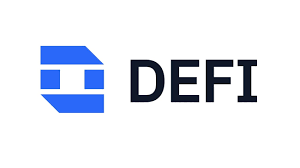
The Abu Dhabi Judicial Department (ADJD) has become the first governmental judiciary entity in MENA to accept stablecoins as a form of digital payments for judicial and legal service fees. With Al Maryah Bank, known as Mbank, ADJD will be using the AED regulated stablecoin AE Coin as a payment means for court related transactions.
As per the press release, ADJD believes this is a milestone towards a fully integrated digital economy and sets the stage for a new era in digital government payments as part of a digitized government.
His Excellency Counsellor Yousef Saeed Al Abri, Undersecretary of the Abu Dhabi Judicial Department, stated that the agreement forms part of the department’s broader development strategy and aligns with the vision of His Highness Sheikh Mansour bin Zayed Al Nahyan, Vice President of the UAE, Deputy Prime Minister, Chairman of the Presidential Court, Chairman of ADJD, to build a modern and innovative judicial system that embraces rapid digital transformation to ensure swift justice and enhance Abu Dhabi’s global competitiveness.
He added, “By diversifying smart payment options and embracing digital currency, we are supporting institutional cooperation and integrating the judicial and financial sectors through advanced technology.” He added that the department is keen on building strategic partnerships with leading banking institutions to maximise the use of digital capabilities and fintech innovations in support of ADJD’s vision for a progressive and responsive legal environment.
From the banking sector’s side, Omar Al Zaabi, Vice Chairman of Al Maryah Bank, commented: “By enabling judicial payments via AE Coin, we are not only streamlining access to government services but also setting a benchmark for how technology can serve the public good in a secure and future-ready manner.”
Mohammed Wassim Khayata, CEO of Al Maryah Bank, also explained, “It’s not merely a technological step; it’s about delivering advanced, secure financial experiences that reflect the UAE’s values and future vision.”
Ramez Rafiq, General Manager of IED Stablecoin, the firm behind AE Coin, believes that AE Coin was developed to be a secure, efficient, and regulatory-compliant digital payment solution tailored for the UAE. he noted, “Its adoption by such a prominent government entity marks a pivotal moment for us and the region’s evolving digital finance landscape.”
AE Coin has already been adopted by airlines, and taxi service providers in the UAE. Prior to this the Abu Dhabi transport Department and Municipalities under the Integrated Transport Center (ITC) of the Department of Municipalities and Transport, Tawasul Transport, allowed passengers to use the AE Coin stablecoin. Additionally Air Arabia airline also started accepting the AED stablecoin, AE Coin, for payments such as flight booking. The airline is the first in MENA to offer a stablecoin based payment option. Users can book their flights using the AEC Wallet application developed by MBank.
Dubai Department of Finance (DOF) , the governmental entity responsible for budget and its execution also signed an MOU with UAE regulated Crypto.com to allow crypto payments for governmental fees.
This comes as the UAE Central Bank regulated AED stablecoins in the UAE, considering them as a legal form of payment.









